Heritage Studies Section Book Launch
02 October 2019, 5:30 pm–7:00 pm
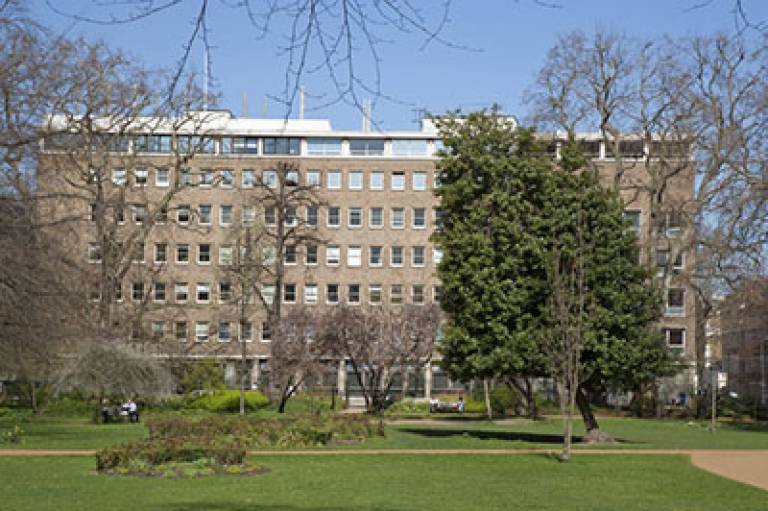
Join members of the UCL Institute of Archaeology's Heritage Studies Section on 2 October for an informal reception to mark the publication of four significant new monographs by Section members.
This event is free.
Event Information
Open to
- All
Availability
- Yes
Cost
- Free
Organiser
-
Prof Rodney Harrison
Location
-
Room 609Institute of Archaeology31-34 Gordon SquareLondonWC1H 0PY
Heritage Section Book Launch/Drinks reception
Wednesday 2October 2019, 5.30-7pm
Institute of Archaeology Staff and Research Student Common Room (6th floor, Room 609)
Books
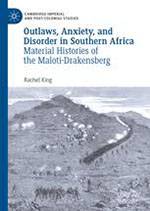
Rachel King’s Outlaws, Anxiety, and Disorder in Southern Africa: Material Histories of the Maloti-Drakensberg (Palgrave Macmillan) explores how objects, landscapes, and architecture were at the heart of how people imagined outlaws and disorder in colonial southern Africa. Drawing on evidence from several disciplines, it chronicles how cattle raiders were created, pursued, and controlled, and how modern scholarship strives to reconstruct pasts of disruption and deviance. Through a series of vignettes, Rachel uses excavated material, rock art, archival texts, and object collections to explore different facets of how disorderly figures were shaped through impressions of places and material culture as much as actual transgression. Offering inter-disciplinary perspectives on the past in Africa’s southernmost mountains, the book grapples with concepts relevant to those interested in rule-breakers and rule-makers, both in Africa and the wider world.
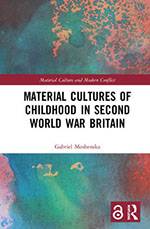
Gabriel Moshenska’s Material Cultures of Childhood in Second World War Britain (Routledge) asks “How do children cope when their world is transformed by war”? This book draws on memory narratives to construct an historical anthropology of childhood in Second World Britain, focusing on objects and spaces such as gas masks, air raid shelters and bombed-out buildings. In their struggles to cope with the fears and upheavals of wartime, with families divided and familiar landscapes lost or transformed, children reimagined and reshaped these material traces of conflict into toys, treasures and playgrounds. This study of the material worlds of wartime childhood offers a unique viewpoint into an extraordinary period in history with powerful resonances across global conflicts into the present day.
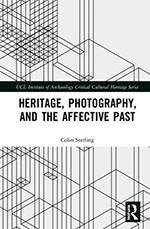
Colin Sterling’s Heritage, Photography, and the Affective Past (Routledge) critically examines the production, consumption, and interpretation of photography across various heritage domains, from global image archives to the domestic arena of the family album. Through original ethnographic and archival research, the book sheds new light on the role photography has played in the emergence, expansion, and articulation of heritage in diverse sociocultural contexts. Drawing on wide-ranging experience across the heritage sector and two international case studies – Angkor in Cambodia and the town of Famagusta, Cyprus – the book makes a major contribution to our understanding of the role photography has played and continues to play in shaping experiences and conceptualisations of heritage. One of the core aims of the book is to problematise and potentially redirect the varied usages of photography within current practice, usages which remain woefully undertheorised, despite their often-central role in shaping heritage. Ultimately, by focusing attention on a hitherto underexamined aspect of the heritage phenomenon, namely its manifold interconnections with photography, this book provides fresh insight to the making and remaking of the past in the present, and the alternative heritages that might come into being around emergent photographic forms and approaches.
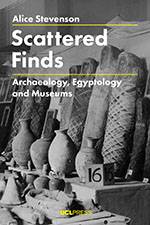
Alice Stevenson’s Scattered Finds: Archaeology, Egyptology and Museums (UCL Press) explores the politics, personalities and social histories that linked fieldwork in Egypt with the varied organizations around the world that received finds. Case studies range from Victorian municipal museums and women’s suffrage campaigns in the UK, to the development of some of the USA’s largest institutions, and from university museums in Japan to new institutions in post-independence Ghana. By juxtaposing a diversity of sites for the reception of Egyptian cultural heritage over the period of a century, Alice Stevenson presents new ideas about the development of archaeology, museums and the construction of Egyptian heritage. She also addresses the legacy of these practices, raises questions about the nature of the authority over such heritage today, and argues for a stronger ethical commitment to its stewardship.
All welcome, drinks and nibbles provided.
 Close
Close

